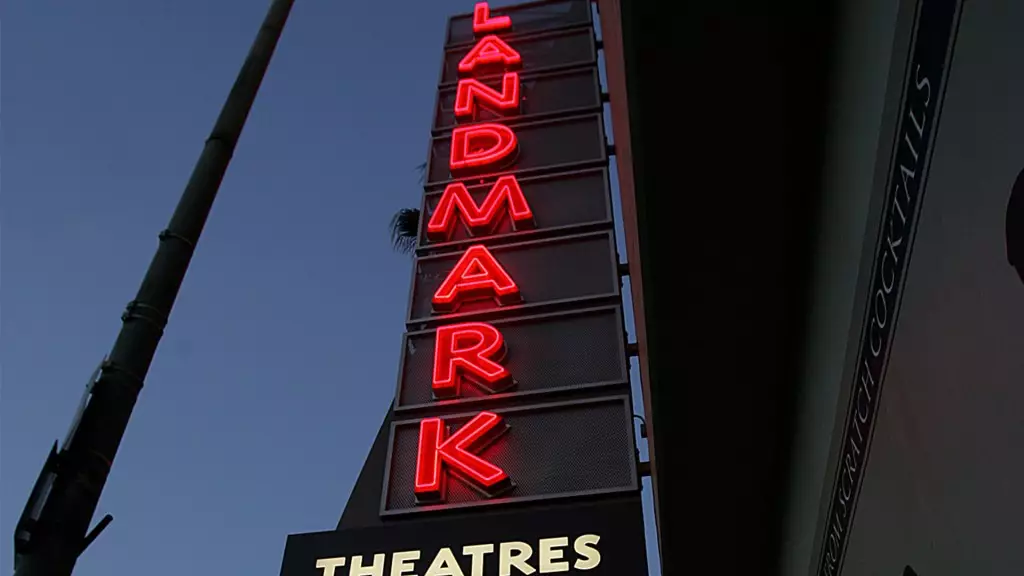In the entertainment sector, few entities have been hit as hard as Landmark Theatres during the past few years. The cinema chain, known primarily for showcasing independent and specialty films, has witnessed a dramatic decline in value precipitated by a confluence of factors. From the fallout of the COVID-19 pandemic to rising interest rates and labor strikes in Hollywood, Landmark’s vulnerabilities have culminated in hundreds of millions of dollars lost. The ongoing legal battles with Fortress Credit Corporation shed light on these struggles, as the financial ramifications threaten the very existence of the chain.
A Legal Quagmire
The legal scrutiny surrounding Landmark Theatres escalated when Charles Cohen, the owner of the company, found himself in court facing allegations of defaulting on a significant loan. This predicament has led to a ruling by New York State Supreme Court requiring Cohen to liquidate assets, which include Landmark’s theatres, to settle his dues. As litigation unfolds, time is of the essence; an auction of the company’s underlying properties is set for November 8th, unless a negotiated settlement is reached. This uncertainty looms over Landmark’s operational future and its remaining loyal customers.
Amidst the ominous legal landscape, Cohen appeared optimistic, expressing a desire for a potential settlement that might save Landmark from further degradation. However, the stark reality remains that Fortress Credit Corporation is adamant about recouping loans and has sought judicial action to prevent Cohen from shielding his personal assets. Alarmingly, it has come to light that he has been transferring significant amounts into new ownership structures—a move perceived as an attempt to shield assets from creditors. This unfolding situation adds a complex layer to an already troubled business landscape.
The financial health of Landmark Theatres is the crux of this predicament. Recent documents revealed in court have painted a dire picture of the company’s finances. During Cohen’s deposition, he disclosed that Landmark had suffered a negative net revenue of over $14 million recently, with its British counterpart, Curzon, reporting losses nearly totaling $8.5 million. These figures underscore the downturn that the exhibition industry faces in a post-pandemic world, alongside external pressures from interest rate hikes and a significant decline in movie attendance.
One pivotal reason behind these losses is the recent Hollywood strikes, which brought film production to a standstill for almost six months, directly affecting the volume of new cinematic releases. Cohen noted that this halt in production, coupled with rapidly shifting consumer behavior, has made it nearly impossible for theatres to regain traction. Cinemas that once thrived on audiences eager to see the latest films find themselves struggling to captivate post-pandemic moviegoers against a backdrop of changing entertainment consumption habits.
As Landmark’s struggles continue, the broader implications for the cinema landscape become apparent. The pandemic has irrevocably altered how audiences consume films, leading to a potential reshaping of the moviegoing experience. Landmark and others in the arthouse sector face not only internal challenges but also external ones—competition from streaming services and a resultant shift in audience behavior.
In light of these difficulties, Landmark Theatres has attempted to diversify its offerings by mixing classic arthouse films with broader releases. This strategic pivot, similar to the moves made by competitors like Alamo Drafthouse, reflects an acknowledgment that the traditional model of cinema exhibition may not be sustainable in its previous form. Yet, following the closure of its flagship Westside LA location, this shift may not prove sufficient to counterbalance the losses incurred.
With the deadline for the auction fast approaching, the fate of Landmark Theatres hangs in the balance. While Cohen’s aspirations for a settlement offer a glimmer of hope, the reality is fraught with significant financial and operational challenges. The company’s long-term viability hinges on more than resolving legal disputes; it must also adapt to the evolving entertainment landscape and find innovative ways to engage audiences who now prefer to enjoy films at home rather than in theatres.
The journey forward for Landmark will undoubtedly require hard choices, strategic pivots, and potentially, major restructurings. As cinema itself grapples with its identity in a digitally dominated age, Landmark presents a case study in resilience—a test of whether it can withstand the storm of economic, legal, and cultural pressures threatening its legacy.


Leave a Reply